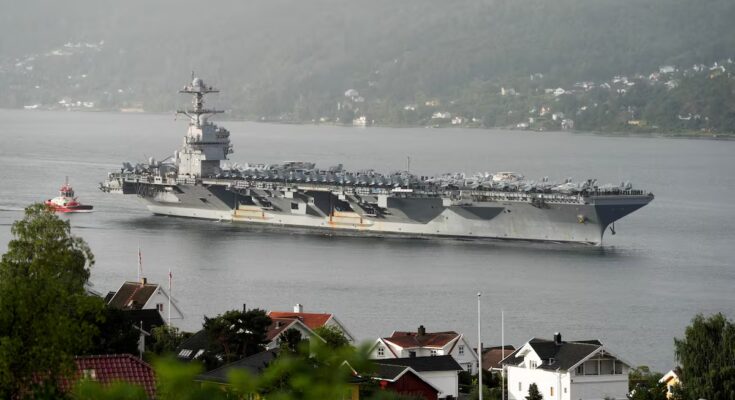Venezuelan Defense Minister Vladimir Padrino López released a statement reporting that the military alert level in the country has been increased. According to the note, this is done in accordance with “orders issued by citizen Nicolás Maduro Moros, constitutional president of the Bolivarian Republic and commander in chief.” Padrino’s announcement, according to the statement, implements “a higher phase” of the so-called “Independence Plan 200,” a military response mechanism ordered in September to strengthen defense measures against the US military presence in the Caribbean.
The decision exacerbates political and military tensions between the United States and Venezuela. When Caracas made the announcement, the USS Gerald Ford – the largest and most advanced of the American aircraft carriers – arrived in Latin America. The Pentagon confirmed the deployment, saying, without specifying its location, that the ship will help “disrupt drug trafficking and degrade and dismantle transnational criminal organizations.” The US military has so far carried out at least 19 attacks on ships suspected of drug trafficking in the Caribbean and along Latin America’s Pacific coast, killing at least 76 people.
The measure will come into force between Tuesday 11 and Wednesday 12 November and provides for “the bringing into full operational readiness of the country’s entire military arsenal”, as well as the massive deployment of “land, air, naval, river and missile resources; weapon systems; military units; the Bolivarian militia; citizen security bodies; and global defense commands”.
The Venezuelan government asks that the plan be implemented following one of the organizational maxims of the Maduro regime: “in perfect civil-military-police fusion”. During the announcement, Padrino – speaking on behalf of the country’s military leadership – stated that the divisions of the Bolivarian National Armed Forces (FANB) are “stronger than ever in their unity, moral cohesion and equipment, together with the Venezuelan people, to preserve at all costs the sacred interests of the country.”
Contrary to some predictions to the contrary, during 2024 – an election year – and 2025, when Maduro resumed his duties as president, Venezuelan military forces repeatedly demonstrated their full loyalty to the interests, narrative and political objectives of Chavismo, the term used to describe the political strategies, leadership and policies of former President Hugo Chávez and his successor.
Although the country’s internal situation appears calm – and disbelief persists among many – top Chavista leaders frequently warn in public statements about the possibility of a US military attack on Venezuela.
The ruling United Socialist Party of Venezuela (PSUV) agreed at an extraordinary meeting to move to “an armed phase of the revolutionary process” if hostilities broke out. These types of warnings, interspersed with constant calls for peace, have become increasingly frequent in statements from Chavista revolutionary leaders in recent weeks.
A few days ago, Maduro declared in a political meeting with his supporters from the workers’ movement that “the order has been given: if an attack is made against the country, we will declare a general, insurrectionary and revolutionary strike.” On that occasion, the Venezuelan president declared that the working class “is Venezuela’s greatest shield against imperialist aggression”.
Sign up to our weekly newsletter to get more English-language news coverage from EL PAÍS USA Edition



